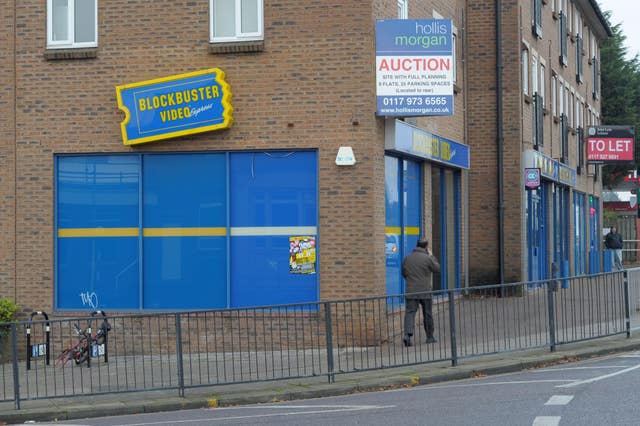
Culture Secretary Nicky Morgan has mooted the possible end of the TV licence fee, while denying the BBC is under “attack”.
Her remarks on the licence fee – which underpins the funding of the broadcaster – come after the Government launched a consultation on decriminalising its evasion.
Baroness Morgan said “the licence fee will remain in place” until the end of December 2027, the current Charter period.
“However, we must all be open-minded about the future of the licence fee beyond this point,” she said.
Confirming a “detailed look at the future of the TV licence model itself”, she said there was a “longer debate” to be had about the licence fee in the wake of the arrival of streaming giants such as Netflix.
Lord Hall, the outgoing BBC director general, previously suggested he thinks the licence fee will survive beyond 2027, saying: “I think it’s got another life.”
Former BBC director general Baron Birt, who listened to Baroness Morgan’s speech in central London, said the moves would be seen as an attack on a “peerless but never perfect institution”.
The debate about “future funding models” comes in the run-up to the BBC’s 100th birthday in 2022.
📖READ: Culture Secretary @NickyMorgan01’s speech earlier today, setting out her vision for the future of public service broadcasting in the UK. https://t.co/IEvn0z5ZMO pic.twitter.com/w9V9CZRGfK
— DCMS (@DCMS) February 5, 2020
The Culture Secretary hit back at suggestions that the moves could be seen as an effort to suppress the BBC, which hit controversy and angered politicians during the election.
“I don’t think anyone should interpret today’s announcement or discussion about the licence fee… as any kind of attack on the BBC,” she said at a Policy Exchange speech, calling it a “cherished British institution”.
She said she “utterly refutes” the suggestion the changes are motivated by punishment of the BBC over alleged slights during the election.
Most of the BBC’s income – around £3.7 billion every year – comes from the TV licence fee.
Baroness Morgan added: “Anybody who’s been campaigning in recent years, standing on doorsteps, will know there is more and more talk about, ‘Why do I pay the licence fee, what do I get for it?'”
It is “the Government’s duty to shine a light” on funding issues, she said, and “public service broadcasting is too important to allow it to become a historical relic like Blockbuster”.
Under the consultation, people will be asked for their views on whether criminal sanctions for the non-payment of the licence fee should be replaced by an alternative enforcement scheme.
Currently, those who refuse to pay the fine for non-payment face the possibility of criminal conviction and imprisonment.

From June this year, the current scheme of all over-75s receiving free TV licences will be restricted to those who claim pension credit.
Baroness Morgan also announced a flexible payment scheme for the TV licence, which will allow “vulnerable people, including those over the age of 75” to split the bill into instalments.
The move towards allowing flexible payments has been criticised by Age UK’s charity director Caroline Abrahams, who said that the new payment scheme “will not change the fact that the sum is simply unaffordable on your low fixed income.”
In 2018, more than 121,000 people were convicted and sentenced for licence fee evasion and issued with an average fine of £176.
Last year, there were about 26 million active TV licences in the UK, generating an income of £3.69 billion for the BBC.
Baroness Morgan said change in the industry and young people’s viewing habits “should be an eye-opener for the BBC”
But a spokeswoman for the broadcaster said: “The BBC tried to set up a Netflix service a decade ago while they were still sending DVDs in the post, but was prevented from doing so by regulators.
“There is a danger that politicians catastrophise the situation.
“The BBC is the most-used media organisation in the UK. It reaches the most people.
“It’s used for the most time. You wouldn’t think that from some of the things being said today.”
John Whittingdale, former secretary of state for Digital, Culture, Media and Sport (DCMS), said it could be considered unfair to prosecute people for not paying the licence fee when there is no way to “switch off” the BBC.
Speaking on Radio 4’s Today programme, he said: “The question is whether or not it is right that someone who perhaps can’t afford to pay the licence fee could possibly face a criminal conviction, rather than have it enforced through the same means as many other charges.”
Mr Whittingdale, who served as a minister in David Cameron’s government, denied the debate over the licence fee was anything to do with the Government’s current stand-off with the corporation over allegations of bias.
“The reason the Government is looking at decriminalisation in the long-term funding of the BBC is nothing to do with its political coverage, it is because the broadcasting world is changing so rapidly,” he said.
Any move to decriminalise licence fee evasion will not come into effect until April 2022.


Comments: Our rules
We want our comments to be a lively and valuable part of our community - a place where readers can debate and engage with the most important local issues. The ability to comment on our stories is a privilege, not a right, however, and that privilege may be withdrawn if it is abused or misused.
Please report any comments that break our rules.
Read the rules hereLast Updated:
Report this comment Cancel